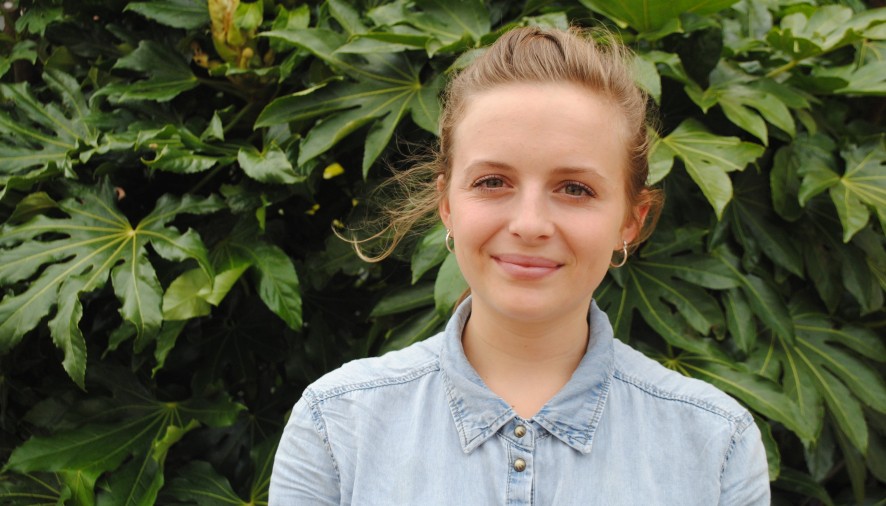The Gryphon speaks to Leeds graduate Rosie Collington, founder of Languages for Good, on how language skills can have a big impact on society
Could you tell me a bit about Languages for Good and the incentive behind it?
Languages for Good is a not for profit network that aims to connect small charities, refugee organisations and community groups with volunteer linguists to help them overcome language barriers in their work. I studied Arabic at university, and when I finished my degree I realised I wasn’t going to be using it a lot in my job. I thought it would be really good to try and find a way to use it, so I got in contact with a few refugee organisations in Leeds over the summer, and asked if they needed any Arabic translators. They were all so desperate for linguists and said they always need language volunteers, which I was really surprised by. I wondered whether something existed already that could be the link to put volunteers with foreign language skills in contact with these community organisations, and if not, why don’t I just set one up. I then set up a really simple website, and tried to find the easiest way to make this work, because I do work full time as well. We launched it officially at the end of September.
How does the network system work?
We can’t guarantee that there’s going to be work for everyone, as it’s more like a micro-volunteer role. If you’re needed we’ll get in contact with you based on your experience and the languages you speak, and hopefully there’ll be something for you to do. Obviously we’re here to support the organisations first and foremost.
Volunteers could be involved in a wide range of different projects. Recently, a local charity that supports the health and welfare needs of sex workers got in touch and asked us if we could translate their outreach document in to ten different languages. This is a document they hand out to people they find working on the streets, or new sex workers just to let them know about the health and welfare support available, many of whom don’t speak English.
We’re also working with a refugee organisation at the moment that wanted interpreting support for one hour face-to-face. It was a request that came through from the mental health case worker, to interpret for the refugee who doesn’t speak English.
How successful has the organisation been to date? What have you achieved?
Within two weeks of launching we recruited over 80 volunteers, so now we have over 100 speaking collectively over 40 different languages. We’ve got partner organisations with a number of small charities, community groups and refugee organisations. We work with any organisation that has an income of less of £500,000 so would otherwise not be able to pay for a translating service. We’ve set up a few really good partnerships in Leeds and West Yorkshire, and we now also have a group based in London, who are setting up a network to help organisations down there.
What would you say to encourage students who speak other languages to get involved?
If you speak more than one language then just register as a volunteer. We can’t guarantee that everyone is going to get work, and we can’t guarantee that when you get work it’ll be very often, but it’s that feeling that when you do get a task then your skills are going to be put to good use and will be having an impact. We’ve already expanded quite a lot over the past month and a half, and we’re currently in the process of registering as a charity, so we will have more volunteer roles in the future. I would also say to any student who is involved in an organisation that could benefit from what we do, please help us get the word out, tell them about us and get them to sign up as a partner organisation.
Going forward, how would you like to see the network progress and develop?
Looking forward, over the next few months we are hopefully going to be applying and getting some funding for some specialist volunteer roles, for medical and legal interpreters. These are much more concrete roles, which require more of a commitment with a set amount of hours. It’s all happened so quickly and we’re really confident about what’s happened so far, but you just don’t know what’s going to happen.
Hopefully in the future we’ll have a similar thing going on all over the UK, because there are tens of thousands of community organisations and refugee groups that could benefit from what we’re doing, we just need to develop as a network. We’ve gone for quite a grassroots approach and it does seem to be working so far.
Why do you think an organisation like Languages for Good is so important for society right now?
We just want people to remember that being able to speak another language, and having this cultural awareness is something that should be celebrated within our communities, and these are skills that can be used for good. I think there is a lot of stigma around multiculturalism, and I just hope that this will remind everyone this is actually something to be celebrated.
(Photo: Tammi Nowell)
Jessica Murray

